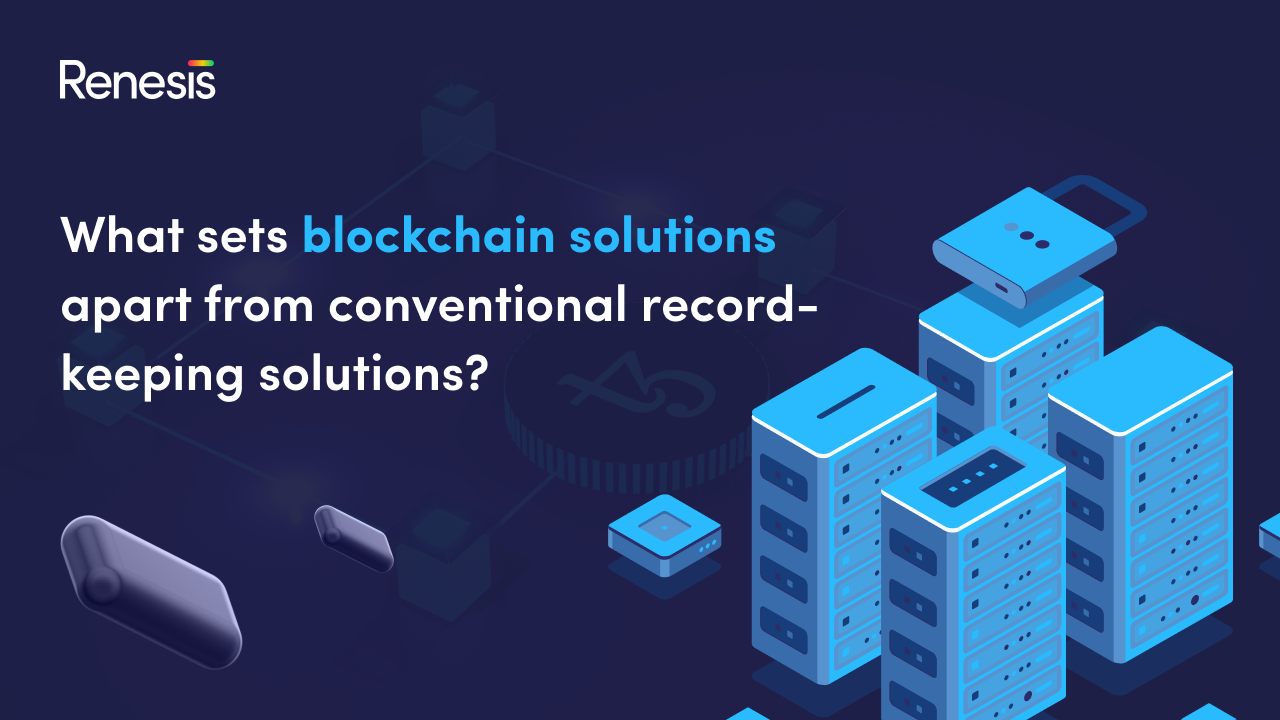What sets blockchain solutions apart from conventional record-keeping solutions?
The world is on the cusp of a digital revolution, in which innovations will change the way we conduct business, from using appliances and gadgets to making financial transactions. Due to the rise of digital transactions and the need for secure record-keeping, many businesses are turning to blockchain solutions. But what are blockchain solutions and how do they differ from conventional record-keeping solutions?
Using blockchain, users can access, modify, and edit data without the need for a central provider through thousands of computers around the world.
Let’s look at a quick comparison of blockchain vs Traditional Record-keeping!
Blockchain vs Traditional Databases:
It is a client-server architecture that is used by all traditional databases. How does this work? Here, a user/client can modify data that is then stored in a central database. In order to provide access to the databases, a specified authority authenticates the credentials of the user/client before granting access.
Blockchain databases consist of many independent nodes. Every node takes part in management; they can all check for updates to the blockchain and add new information to the database. Changing the blockchain requires the agreement of the majority of nodes. As a result of this consensus mechanism, the network is secure and manipulation of the network is more difficult.
Is Blockchain a secure technology?
This software allows for the creation of decentralized databases using blockchain technology. This system is entirely open source, which means anyone is free to view, edit, and propose changes to its code base. The way the service works is by creating a “ledger”.
“Blockchain” databases allow users to create transactions with one another by storing the contents of those transactions in new “blocks”.
There are different algorithms for encrypting transactions depending on the application that generates them. Using cryptography, this process uses encryption to ensure the safety of any new data that may be added to the blockchain.
Benefits of Using Blockchain for Record Keeping
Blockchain technology has many features that make it more reliable, secure, and different from all other recording technologies. Using blockchain for record-keeping has some benefits:
1 – Cost Reductions:
In conventional record-keeping systems, there ought to be a third-party authority or party that keeps track of all the data. The blockchain, however, does not require any third party or organization because everything is recorded in a decentralized digital ledger, so there is no chance for any witness or formal record. By doing this, we can reduce our expenses that are just the result of a third party or organization.
2 – Enhanced Security:
Conventional recordkeeping stores data formally, and new entries of translation can be easily added or removed. Blockchains keep records of data in a digital ledger in the form of blocks, so there are no chances for errors or hacks to occur.
3 – Transparency:
Conventional record keeping prevents users from accessing transnational data records, etc. Only authorized persons or organizations can manage the data. In contrast, in blockchain, everyone who is involved in the translational process or is part of it can easily access the recorded data. In this sense, the blockchain is more transparent when it comes to agreements and data.
4 – Eliminate Errors and Mistakes:
The conventional method of record keeping involves an authorized person or organization recording every little piece of translation data or entry formally or manually, which increases the chances of mistakes, errors, and omissions.
Due to the decentralized nature of the blockchain ledger, blockchain data cannot be hacked, interfered with, or manipulated. As a result, blockchain is a more reliable and secure technology.
Compared to conventional record-keeping solutions, what makes blockchains different? The short answer to this question is decentralized control. By eliminating centralized control, which is what traditional record-keeping solutions are all about, these solutions eliminate any potential risk. Any individual with access to a traditional database is capable of deleting, corrupting, or destroying the information. Because of this, users are reliant on the security infrastructure of the database administrator.
Would you like to make the switch to blockchain technology? Check out our website and browse all our options. Get the best expert team for your projects today!










